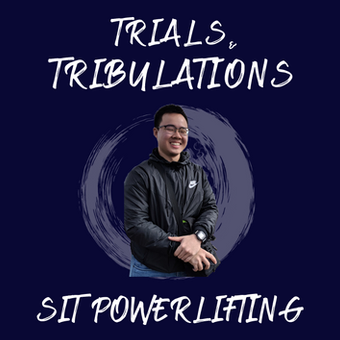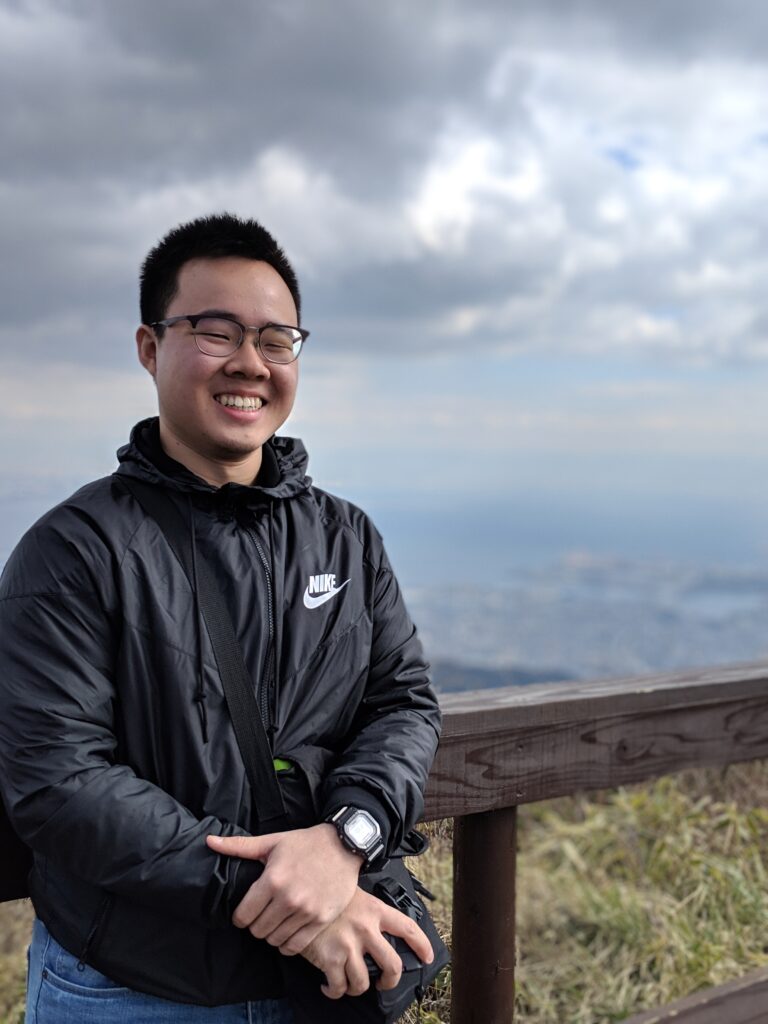
MARCUS KONG
Marcus is currently a Year 2 Student reading Physiotherapy at Singapore Institute of Technology. With 5 years of lifting under his belt, he contributed to the Powerlifting community by being the President of SIT Powerlifting for the year of 2020. Marcus once slammed his head so hard into a bar to psych himself up just to have it bled so much he went to the emergency department. He currently has an interest in Pain science, as well as making people stronger and healthier through the use of resistance training.
Part 1: Introduction
Greeting to the fellow readers! I am Marcus Kong, currently a 2nd year student reading Physiotherapy in Singapore Institute of Technology (SIT). Being a former 2nd Year President of SIT Powerlifting (SITPL), I would like to share with you guys the highs and lows of running a sports club during the height of the pandemic. I hope you get an insight into my personal struggles and learn something.
part 2: why did i take up the role as the president of SITPL?
A bit of my lifting background. I have been strength training a couple of years and have sparsely competed in Powerlifting back in 2016, 2017 and 2019. These were all done in the midst of preparation for major life exams and while I was in the military, thus my training was never smooth sailing. However, I really enjoyed the process of training, where the sport seemed like a role-playing game. Invest X hours into lifting and get Y in return. The aspect of continually improving intrigued me and I really wanted to share the joy I had gotten from barbell training with others.
During my first year of University, I was approached by the founder of SITPL, Joben, to take over him. He shared with me his vision and what kind of club he wanted SITPL to be. It was one where anyone and everyone could lift and barbell and have fun doing it. Creating a team sport from one that is largely individual. This really stuck with me because I too wanted to have a community of people that I could train and hang out with, not worried about the pressures of competition.
Furthermore, in my training career, I had the pleasure of training with a crew of people who always showed up when I trained. It felt like a second home, where you had a support network of like-minded people, all enjoying the same hobby you do. With that, I had an idea of what I wanted the club to be. A second home and a safe haven to my fellow brothers and sisters in iron. A respite for the tired soul, slogging away at books and assignments.
As a result, these spurred me on to challenge myself and helm SITPL for the year of 2020. Unbeknownst to me was an uphill battle that was yet to come.
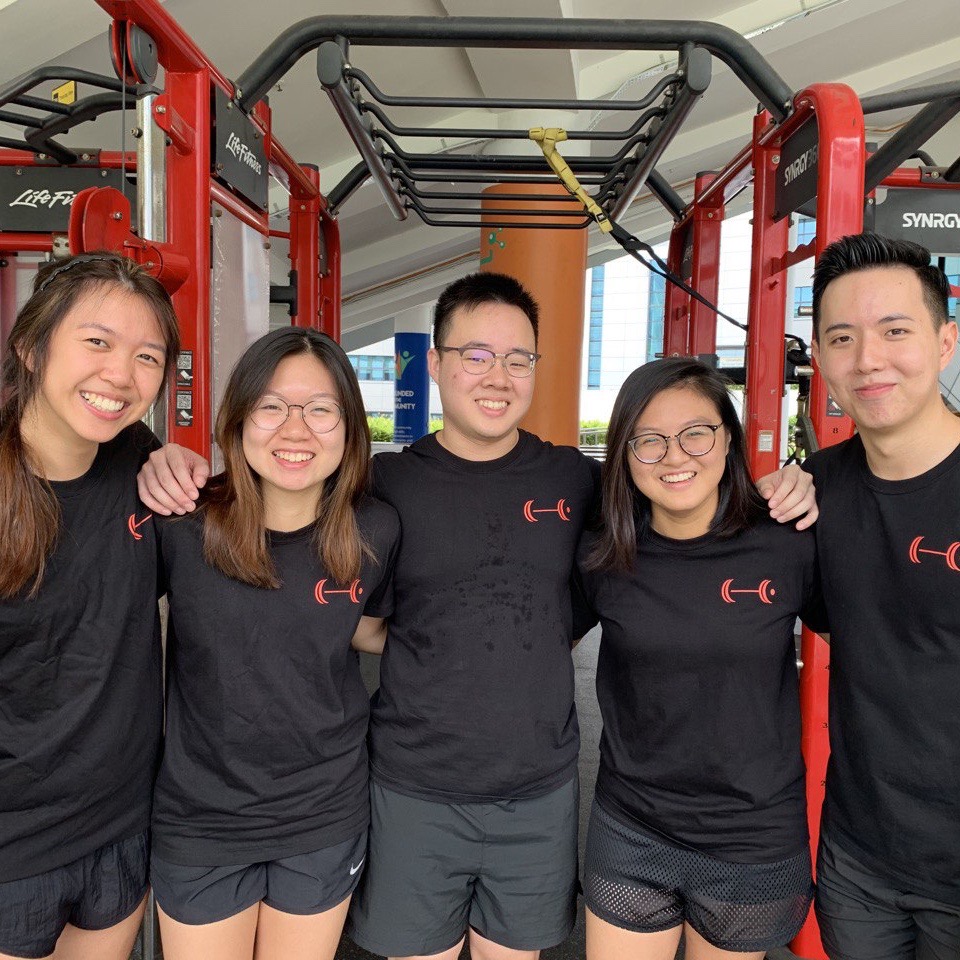
part 3: cOVID-19 and an inactive club
When my team and I took over in January of 2020, we had plans to continue the good work of the previous committee and create a safe environment for anyone and everyone to lift. Furthermore, we pursued the aspect of creating a competitive team as we had aspiring members who were keen to compete in Tertiary Powerlifting Championships 2020 (TPC 2020). This was the inaugural powerlifting competition for tertiary students in which the competitive members were excited to try their hands at competing in 2020. As this was not my main focus at the time, Joben continued to anchor the competitive side while I focused on building the community of lifters.
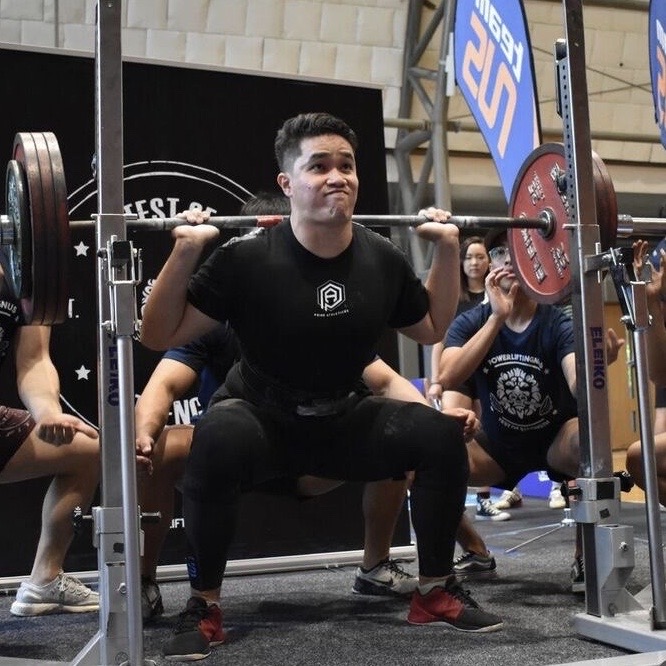
Test of Strength 2019
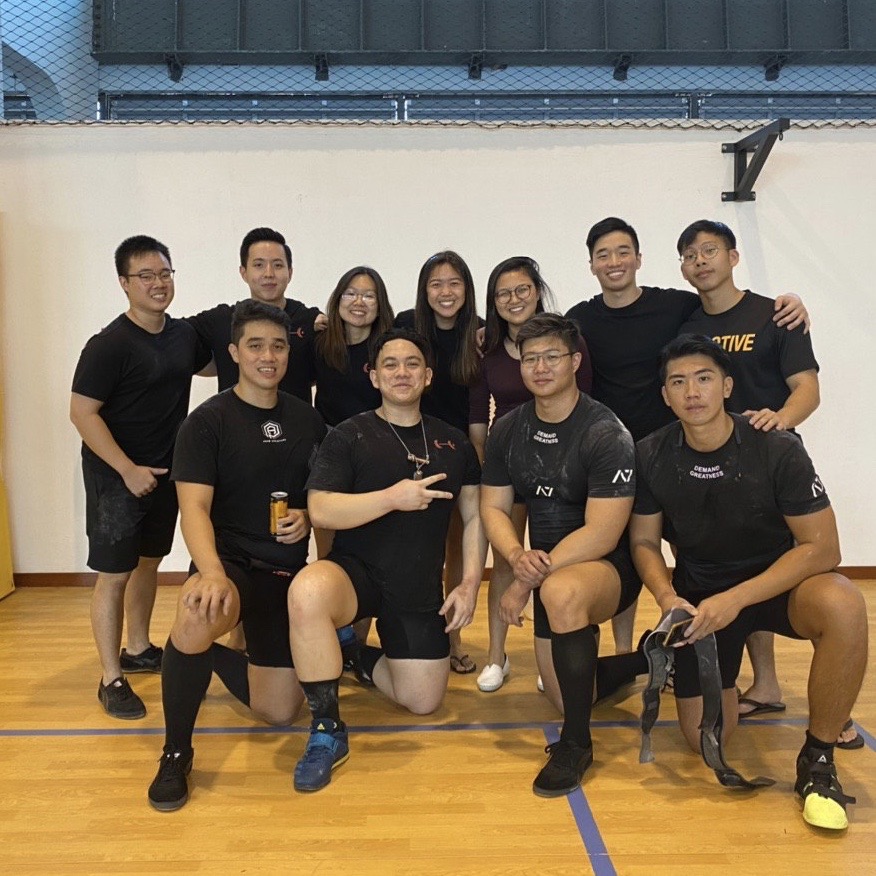
Tertiary Powerlifting Championship 2020
I continued to try and entice more members to be active and come for open training sessions twice a week. I envisioned that club members would come and lift together, with good banter making training a little less mundane. However, the turn-ups were quite poor. Whenever I tried to engage members for sign-ups, there was a less than ideal response in the group chat. As such, a lot of the training was just focused around the competitive team using the facilities to train. This continued until the end of TPC 2020 and where things started to go downhill in terms of the pandemic.
I’m sure many of you fondly remember. Singapore had tightened measures to limit human interactions to stop the spread of the virus. What this meant for school was that lessons were to be held online and clubs/ teams were not allowed to hold any live training sessions. More importantly, gyms were closed throughout the country and barely anyone had access to lifting equipment. The proposals and preparation my team had done to increase club cohesiveness prior to the lockdown all went down the drain. Suffice to say, my team was demotivated to pursue anything serious throughout the whole lockdown. Trying to salvage the situation, I took to the club’s Telegram group and Instagram to disseminate information about online activities that the committee has organised. Push-up challenges, online club meetings etc. The bleak responses from the club members was really demoralising. From that experience, I was exposed to a lot of the current problems the club was having.
Firstly, the club handover was disappointing. The previous committee had founded the club but only Joben truly cared for its survival. Be it from improper communication or a lack of planning on their part, there wasn’t a formal public handover of leadership. Many members were not aware of the handover and continued to think that Joben was still the president. This led me to being largely ignored when I tried to engage members. However, I must add that I was also to blame for the predicament that I am in. If I were just a bit more outgoing and put myself out there when I became president, maybe things would have been different.
Next, the members of the club weren’t actually members. The previous committee had different priorities with regards to ensuring the club’s survival. Showing the school that the club was alive and thriving through astounding sign-ups and membership was one way to accomplish that. As a result, any person who was remotely interested in lifting joined the Telegram group. This lack of a screening process meant that membership numbers were inflated. As a result, the club that I took over largely resembled one of an empty shell.
Lastly, my own personal traits hindered my ability to execute plans and trust my team members. I must acknowledge that I am a perfectionist and am extremely afraid of failure. As a result, I decided to take it upon myself to do a lot of the work in running the club. I was afraid of the multitude of ways my team members could mess up, and I didn’t trust them to do a good job. As a result, school work, administrative duties and life stress started to pile up, affecting my mental and physical health. To keep it short, I wasn’t as good of a leader I could have been if I trusted my team more and delegated work appropriately. Getting things done and doing things was more important than getting it perfect. More often than not, things never go perfectly, and it’s sufficient to have a finished product albeit with a bit of imperfections.
part 4: life after lock-down and what i did to rectify the situation
Post-lock down, things started to look up. Training could resume, but it was subject to strict safe distancing and participation restrictions. Furthermore, our club had just run an online club fair for the new batch of students entering into SIT. To my surprise, there was an unprecedented amount of sign-ups for the club. With that, I made some drastic changes to ensure that what happened in the past, won’t happen again.
Firstly, I decided to create a whole new Telegram group to purge inactive members. This was a hard pill to swallow because it meant that “membership” numbers would be cut down significantly. I called for any active members that wanted to stay in the club to fill in their details so that I could port them over. Furthermore, for new sign-ups to be counted as members, they had to attend 1 training session at the very least. As training facilities were still a pretty rare commodity, club training sessions were still quite enticing and turn-ups for training were great.
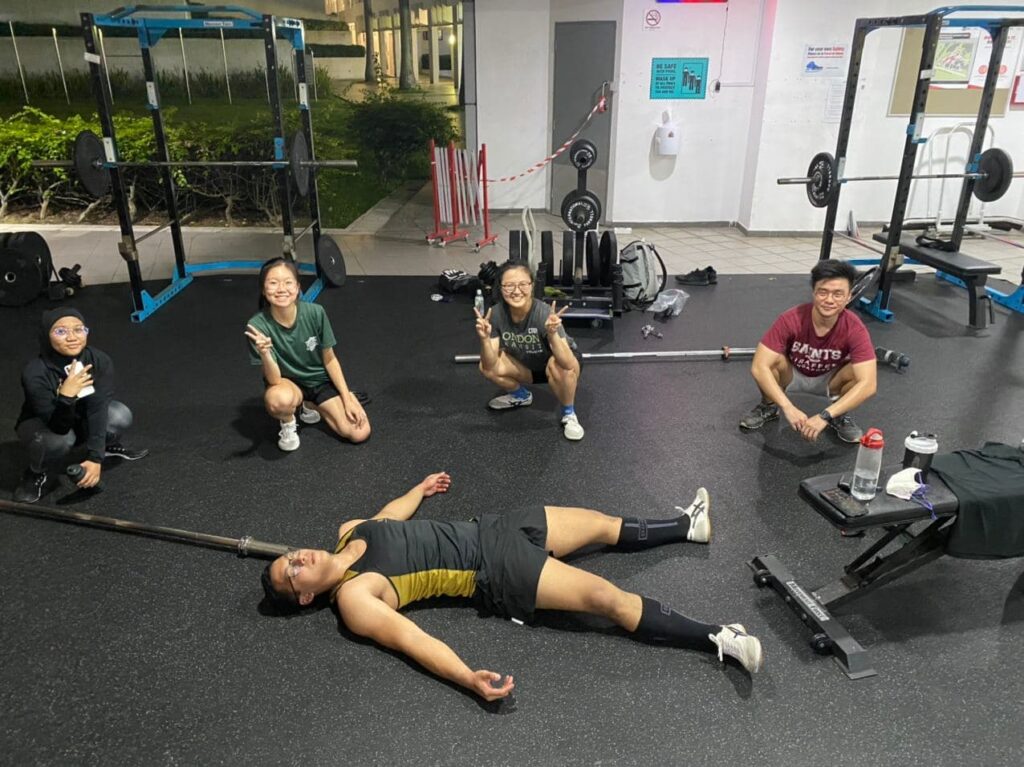
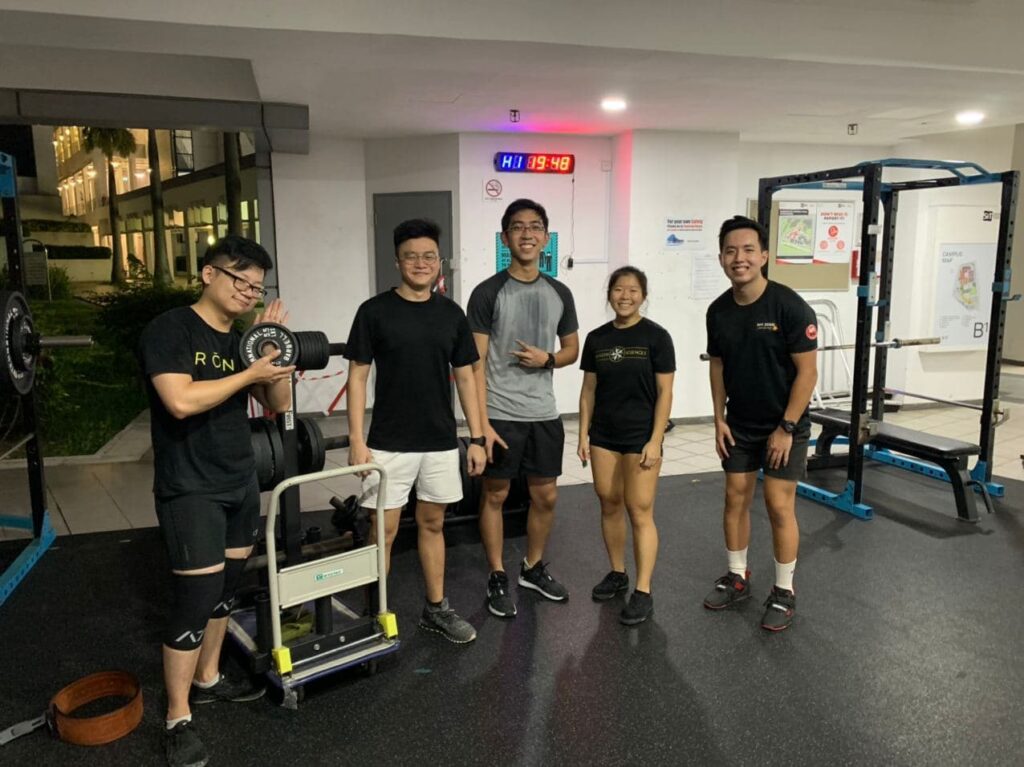
Training Post-Lockdown
Secondly, I started to delegate more work to my team and trusted them more. I made my team members join training sessions to meet new members so that our faces were to be seen and people would know of our existence. I entrusted my members with more administrative responsibilities that I had taken up in the past. This led me to be more free and for once, actually focused on building relationships with my club members and taking care of them, making them feel at home. I truly hoped that the current batch of members recognised my sincerity and commitment to my vision of making SITPL a place to call home where anyone and everyone who is willing to lift a barbell is wholeheartedly welcomed.
Lastly, as my term was coming to an end, I wanted to ensure that I found capable and motivated people to take over the leadership roles of the club. I was also determined to do the handover right and ensure that I would be with them at every step of the way. When Joben handed the club over to me, he said something along the lines of how he wanted a change of leadership yearly, so that the identity of the club does not belong to a single person but exists as a club. That way, the club doesn’t die when the face of it leaves or graduates. This really resonated with me and I felt the exact same way. Thus, my team and I conducted rigorous interviews for interested candidates to ensure we picked the right people that had the same vision as us. After much deliberation, we came to a conclusion of whom we wanted. I’m very pleased to say that the current batch of committee members are really an inspiring and motivated bunch that embody the spirit of the community aspect of powerlifting.
part 5: TL;DR and what i have learned
If you have made it this far, I applaud your tenacity and perseverance. It must not have been easy to read through a year’s worth of perspective of how I ran the club.
In summary, here are the more pertinent lessons I wish to impart to future or current leaders of clubs (be it powerlifting or not)
1. Believe in your team and delegate work appropriately — lest you suffer from being overworked.
2. Have a good screening process to ensure your members are motivated and have reason to be staying and engaging in your activities.
3. In difficult times, continue to engage your members. Even if they do not respond, you can pat yourself on the back saying you’ve tried your best.
4. Ensure the handover is properly done — Make it loud and make it proud. You have ended your term. Introduce and mentor the next batch of committee members so that they do not have to go through the same struggles as you did.
Thank you for taking the time to read this. I hope that you’ve gained something out of this and that it will help you out in your leadership roles!
